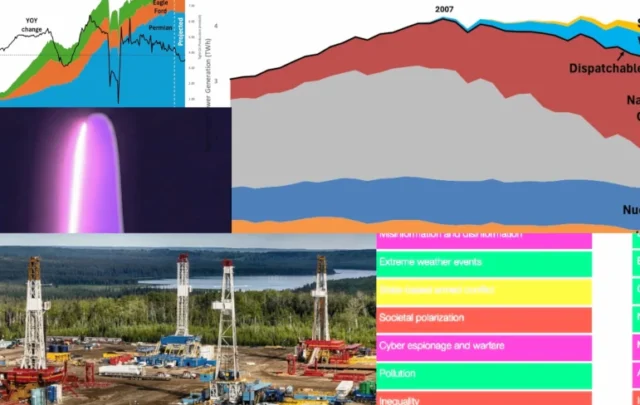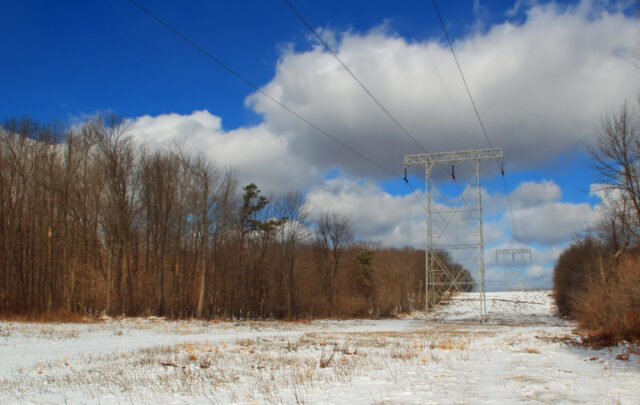Click on the headline (link) for the full text.
Many more articles are available through the Energy Bulletin homepage
House passes bill to sue OPEC over oil prices
Tom Doggett, Reuters
The House of Representatives overwhelmingly approved legislation on Tuesday allowing the Justice Department to sue OPEC members for limiting oil supplies and working together to set crude prices, but the White House threatened to veto the measure.
The bill would subject OPEC oil producers, including Saudi Arabia, Iran and Venezuela, to the same antitrust laws that U.S. companies must follow.
The measure passed in a 324-84 vote, a big enough margin to override a presidential veto.
… The White House opposes the bill, saying that targeting OPEC investment in the United States as a source for damage awards “would likely spur retaliatory action against American interests in those countries and lead to a reduction in oil available to U.S. refiners.”
(20 May 2008)
The search for scapegoats goes on. -BA
The Big Question: Does Opec have too much power, and is it to blame for the high price of oil?
Michael Savage, The Independent (UK)
Why are we asking this now?
As consumers continue to encounter rising living costs and higher prices at the petrol pumps, Gordon Brown has heaped some of the blame on Opec, the cartel of oil producing countries which produces around 40 per cent of the world’s crude oil. He criticised Opec for holding back oil supplies and allowing the price of oil to skyrocket. Chakib Khelil, the current president of Opec, has already ruled out increases in production any time soon, arguing that there is no sign of a shortage. In the meantime, the price keeps going up. Oil hit a new high of $129 a barrel yesterday, and even Opec ministers have predicted that it could reach $200 (£100) a barrel within two years.
But while it may seem like Opec has the world over a barrel, other factors are at play. Some would argue that Brown’s attack contains more than a hint of wishful thinking. After all, it is much more reassuring to think Opec is holding back the supply of oil, than to believe that the world’s oil fields are simply running dry. If the latter is true, there would be little Opec could do to tackle high oil prices.
… So is Opec holding oil production back?
That’s the billion dollar question. Several world leaders think so, but now some are reading Saudi Arabia’s reluctance to invest further in its oil fields as evidence that its supply is under threat. If that is the case, some argue world oil production may soon have peaked. The country keeps information on its oil industry secret, so there are many claims and counter-claims made. But if that is true, Opec – and Saudi Arabia in particular – may not be holding back oil, but simply unable to raise production further.
(21 May 2008)
Fuelling Brown’s desperation
Dilip Hiro, Guardian
The prime minister’s attack on Opec was unwarranted and short sighted: it’s a sign of how poorly he grasps the forthcoming oil crisis
—
When in trouble at home, lash out at foreigners. It is a formula that politicians in power find effective in reversing their declining approval ratings.
So, with the Labour party’s support sinking to a record low of 27% in the latest Guardian/ICM poll, Gordon Brown found a useful target in the Organisation of Petroleum Exporting Countries (Opec). He blamed it for the record high prices of petrol and diesel.
Describing it as “a scandal that 40% of oil is controlled by Opec,” he called for the European Union and G8, the group of highly industrialised countries, to break down its control.
Such declarations show woeful ignorance of basic facts. The ultimate source of Opec’s power lies not with its production of two-fifths of the global total but with its possession of three-quarters of the world oil reserves.
So it is hard to see how the European Union or G8 can take away what mother nature has bestowed upon Opec’s 13 members.
(20 May 2008)
Dilip Hiro is the author of 27 books including his recently published “Blood of the Earth: The Global Battle for Vanishing Oil Resources.” Previous op-ed by Hiro: Powerless on oil prices. He doesn’t emphasize peak oil or problems with supplies. -BA























